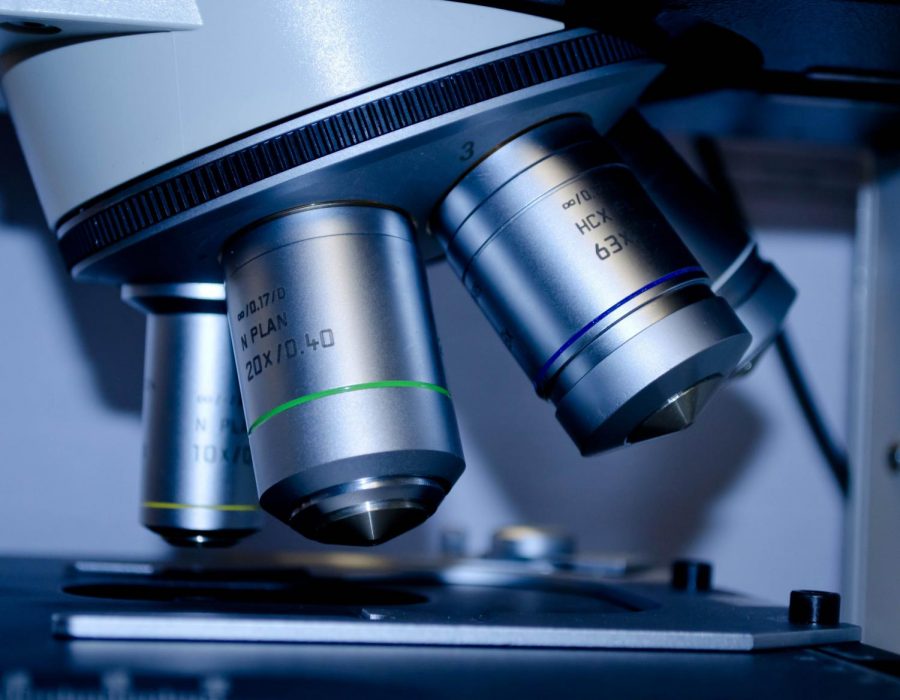Protists: rooting for biology’s underdogs
Opinion Columnist Emerson Slomka explains the importance of Protists in our ecosystem.
Sep 23, 2019
When considering the various life forms that inhabit the earth, a few major groups come to mind. There are, of course, the animals, the kingdom which includes ourselves and our furry (or scaly, or feathered) friends. We also have the plants, the photosynthetic organisms that provide us with food, structure and, of course, oxygen. There are the fungi, the mushrooms and molds that we are disgusted by almost as frequently as we eat them, as well as the kingdoms of bacteria, microbial, single-celled organisms that both help and hinder our health.
To most people, this would appear to be a complete assessment of life on earth. However, there is yet another kingdom which not only exists, but impacts our lives profoundly on a daily basis. This is the kingdom protista, one of the most complex and diverse biological kingdoms that has been the subject of controversy throughout the biological community for decades.
Though much about protists (a collective name given to members of the kingdom protista) is still a mystery, one thing is certain: protists are both fascinating and essential to life on earth. So, what exactly are protists, and why should we care about them? Let’s grab our microscopes and take a closer look at the kingdom protista.
If you were looking for a cohesive, set-in-stone definition of protists, you may be disappointed to find that there is none. While every biological organization has their own way of defining the group, I feel the best and simplest definition comes from the Encyclopedia of Life: protists are organisms that don’t fit into any other category. This means that the kingdom protista is composed of amazingly diverse organisms that often don’t seem to belong together, simply because they don’t belong anywhere else. One can imagine the kingdom protista as a group of high school outcasts– they are diverse, often to the point of lacking any real similarities, but held together by their status as misfits.
There are, however, a few characteristics that most protists share: most are microscopic, and are predominantly unicellular (single-celled). However, as you may have guessed, there are many exceptions when it comes to this enigmatic kingdom. Breaking it down even further, while protists are their own kingdom, some protists are animal-like (protozoan), plantlike (algae), or fungus-like (slime and water molds).
Breaking protists down into these three categories makes them much easier to understand. However, we’re not here to analyze every type of protist and every trait they possess—we’re here for the important stuff; the stuff that affects us!
When we consider how oxygen is produced, we often think about plants. While plants do play a role in oxygen production, perhaps we give them too much credit. In fact, an estimated 70% to 80% of the oxygen that we breathe is actually produced by algae and phytoplankton—both protists!
Of course, not all protists are created equally. Algal blooms, such as the infamous red tide, can spread toxins, killing sea life and closing beaches. Similarly to bacteria, certain types of protists, when ingested, can cause disease. Giardia protozoa cause giardiasis, an infection that prevents a host’s intestines from absorbing nutrients, and Plasmodium protozoa cause malaria, which is spread by mosquitoes and kills several millions of people annually.
So, in reality, understanding protists is important on multiple levels. They both help and hinder life, though their positive impact is arguably greater. Understanding protists can give us a more well-rounded grasp on the world around us, help us to combat disease, and to give us insight on one of nature’s biggest oxygen sources, some of which that have been silently struggling. Climate change greatly threatens phytoplankton populations in the oceans, so much so that there has been a 40% decrease since 1950. While the solutions to damage caused by climate change are complex and often controversial, one must admit that the first step to finding a solution is understanding the problem. It’s incredibly alarming that one of the most important energy and oxygen sources on the planet is disappearing right in front of us, especially considering that many are not aware of their existence or importance in the first place.
While the kingdom protista is frustratingly complex and simple at the same time, existing as a “dumping ground” for all biological outcasts, it’s clear that protists are some of the most important organisms to our ecology, even if they don’t get the credit they deserve. So the next time you take a deep breath and feel grateful that you’ve got oxygen on demand, thank biology’s underdogs.








